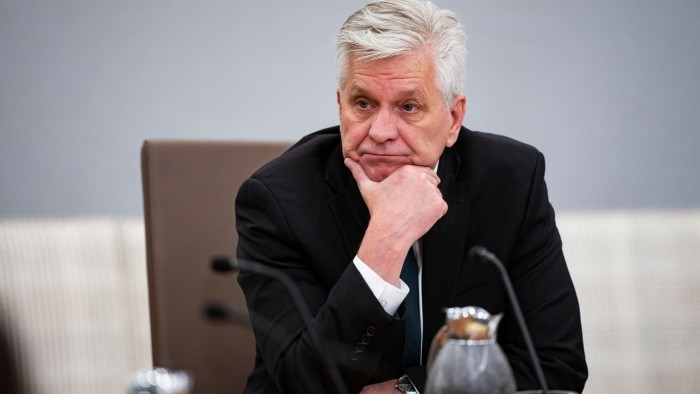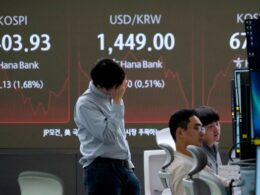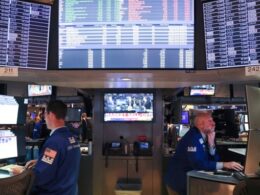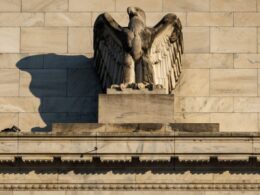Unlock the Editor’s Digest for free
Roula Khalaf, Editor of the FT, selects her favourite stories in this weekly newsletter.
The Federal Reserve may need to cut interest rates sharply to prop up the US economy if Donald Trump follows through on his threat to resume big “reciprocal” tariffs, a top official at the central bank has warned.
Christopher Waller, a Federal Reserve governor, said on Monday that if the US president reimposes the levies unveiled on April 2, then the US central bank would be forced to quickly make a series of “bad news” rate cuts.
Trump last week suspended the “reciprocal” tariffs for 90 days shortly after they were imposed amid market ructions over measures Waller said would put the effective levy on US imports at more than 25 per cent — up from 3 per cent in December 2024.
The US at the weekend temporarily excluded phones, chipmaking equipment and certain computers from the reciprocal tariffs.
Waller said that if Trump applies big reciprocal tariffs after the pause, US economic growth would “slow to a crawl”, while the unemployment rate would rise “significantly” from 4.2 per cent to 5 per cent next year.
He said he believed that, while inflation could rise as high as 5 per cent in the near term, any hit to price pressures would prove fleeting — paving the way for Fed cuts to weigh against the impact of an economic slowdown.
“While I expect the inflationary effects of higher tariffs to be temporary, their effects on output and employment could be longer-lasting and an important factor in determining the appropriate stance of monetary policy,” said Waller on Monday. “If the slowdown is significant and even threatens a recession, then I would expect to favour cutting the . . . policy rate sooner, and to a greater extent than I had previously thought.”
Waller’s views clash with those of other members of the policymaking Federal Open Market Committee — several of whom believe that there is a risk of a persistent surge in inflation because of the tariffs. While Trump as paused the “reciprocal tariffs”, many levies remain, including on steel and aluminium imports and many goods from China, the world’s biggest exporter.
Other FOMC members have stuck by a “wait and see” approach to lowering borrowing costs, saying that they would need to see evidence in the hard data of a slowdown before responding.
Trump has persistently called on the Fed to cut interest rates, taking aim at chair Jay Powell, who the US president has accused of acting too late in lowering borrowing costs.
The US central bank has kept interest rates on hold at a 4.25 to 4.5 per cent range since the turn of the year, amid signs that the new administration’s trade policies will raise inflation and stunt growth.
However, Waller’s views on the rise in unemployment echo a New York Fed poll of consumer sentiment published earlier on Monday, which showed 44 per cent of people now think unemployment will rise in the next year. The figure is the highest since the pandemic and is up 10 percentage points since Trump took office.
Waller said the tariffs unveiled on April 2 were “dramatically larger” than he had anticipated, adding that levies “this large and broadly applied” could significantly impact the world’s largest economy.
The Fed governor said that if the 90-day suspension marked “the beginning of a concerted effort” to negotiate lower trade barriers, then the US central bank could have “more patience” in lowering interest rates.
Waller also took aim at the US president’s view that the tariffs could quickly turn the US back into a manufacturing behemoth.
“Keeping the large tariffs in place [until at least the end of 2027] would be necessary if the primary goal is remaking the US economy, which is now mostly services, into one that produces a larger share of the goods it consumes,” he said. “Such a shift, if it is possible, would be a dramatic change for the United States and would surely take longer than three years.”
Source link









